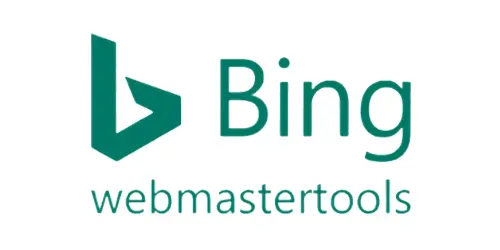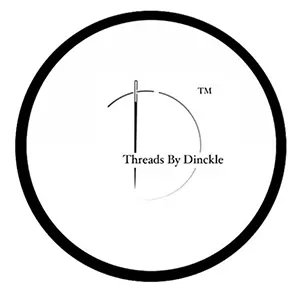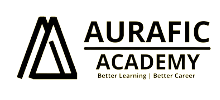Advanced Digital Marketing Course (ADMC)
India’s Best AI Integrated Digital Marketing Course for Students, Professionals and Business Owners
[Advanced + Professional Certification]
4.8 (624 reviews)
AI Based Digital Marketing
AI based course curriculum for demand based learning
60+ Premium Tools Mastery
To give you hands-on experience, you get to work on 60+ premium tools
Detailed Course Information including Fees
120+ Hours Live Classes
Weekday and Weekend classes with doubt sessions
Internship & Placement Support
Our course comes with default job assistance and merit based internship

Get Certificates From
2800+
Students Trained
1:10
Trainer - Student Ratio
Nov 02, 2024
Batch Start Date
100%
Job Assistance
24*7
Chat Support
Who Should Participate in This Course?
Students
Professionals
Entrepreneurs
Business Owners
Digital Marketing Overview
A digital marketing course is highly relevant in today’s industry due to the growing reliance on online platforms for business growth. With consumers increasingly turning to digital channels for information and purchases, companies need skilled professionals to navigate this shift. The demand for digital marketing experts has surged, as businesses strive to establish strong online presences and effectively engage their target audiences.
Current trends like social media advertising, content marketing, and search engine optimization are shaping how brands communicate and grow. Learning these skills through a relevant training such as advanced digital marketing course (ADMC) offered by Aurafic Academy equips individuals to adapt to these evolving trends, utilizing tools like Google Analytics, social media algorithms, and paid search strategies. This knowledge is essential for crafting data-driven campaigns that resonate with modern consumers.
Moreover, the rise of AI-driven tools, video marketing, and influencer collaborations has added new dimensions to digital marketing. Our advanced digital marketing course offers practical insights into leveraging these trends, ensuring professionals stay ahead in a rapidly changing landscape.
Yes, with the rise of online learning, digital marketing courses are now widely accessible. Numerous institutes offer online digital marketing courses in India, however for gaining basic-level learning and insights, you can rely upon online marketing blogs and YouTube videos.
Digital marketing is a thriving career in 2024, with high demand for skilled professionals to elevate brands’ online presence. Demand is high for skilled professionals and to take this into your advantage, you need to up-skill yourself in the field of digital marketing with a well structured digital marketing course.
Digital marketing is a thriving career in 2024, with high demand for skilled professionals to elevate brands’ online presence. Demand is high for skilled professionals and to take this into your advantage, you need to up-skill yourself in the field of digital marketing with a well structured digital marketing course.
Digital marketing is a thriving career in 2024, with high demand for skilled professionals to elevate brands’ online presence. Demand is high for skilled professionals and to take this into your advantage, you need to up-skill yourself in the field of digital marketing with a well structured digital marketing course.
Digital marketing is a thriving career in 2024, with high demand for skilled professionals to elevate brands’ online presence. Demand is high for skilled professionals and to take this into your advantage, you need to up-skill yourself in the field of digital marketing with a well structured digital marketing course.
Digital marketing is a thriving career in 2024, with high demand for skilled professionals to elevate brands’ online presence. Demand is high for skilled professionals and to take this into your advantage, you need to up-skill yourself in the field of digital marketing with a well structured digital marketing course.
Digital marketing is a thriving career in 2024, with high demand for skilled professionals to elevate brands’ online presence. Demand is high for skilled professionals and to take this into your advantage, you need to up-skill yourself in the field of digital marketing with a well structured digital marketing course.
Digital marketing is a thriving career in 2024, with high demand for skilled professionals to elevate brands’ online presence. Demand is high for skilled professionals and to take this into your advantage, you need to up-skill yourself in the field of digital marketing with a well structured digital marketing course.
Digital marketing is a thriving career in 2024, with high demand for skilled professionals to elevate brands’ online presence. Demand is high for skilled professionals and to take this into your advantage, you need to up-skill yourself in the field of digital marketing with a well structured digital marketing course.
Digital marketing is a thriving career in 2024, with high demand for skilled professionals to elevate brands’ online presence. Demand is high for skilled professionals and to take this into your advantage, you need to up-skill yourself in the field of digital marketing with a well structured digital marketing course.
Digital marketing is a thriving career in 2024, with high demand for skilled professionals to elevate brands’ online presence. Demand is high for skilled professionals and to take this into your advantage, you need to up-skill yourself in the field of digital marketing with a well structured digital marketing course.
ADMC Course Highlights
- Skill Level: Basics + Advanced
- Mode: Videos / Live Online Sessions
- Language: Hindi/English
- No.of Hours: 120+ Hours
- Batch Size: 4 – 5 Trainees / Batch
Eligibility Criteria
- Suitable for Students, Professionals, Entrepreneurs and Business Owners
- Basic understanding of computer and Internet
- Academic qualifications: Graduation (In any field)
Key Highlights
Industry Led Curriculum
1:1 Mentoring
100% Placement Assistance
60+ Digital Marketing and AI Tools
10: 90 (Theory:Practical)
Video Session Recordings
Live Projects
AI Based Mock Interviews
Leadership & Agency Skills
Project Management & Conflict Resolution
Industry-recognised Certifications
Free Study Material and Templates
Advanced Digital Marketing Course Curriculum
- Brand Truth: Marketing Fundamentals
- Customer Journey: AIDA Funnel
- Website Basics
- Search Engine Optimisation
- Google Ads
- E-Commerce
- Lead Generation & Management
- Blogging
- Creative Planning & Designing
- Reporting & Excel Training
- Social Media Organic
- Brand Reputation Management
- Social Media Paid
- Influencer Marketing
- Resume & LinkedIn Profile Building
- Lead Generation & Nurturing
- Video Creation & Editing
- Google Analytics 4
- Capstone Project
- Interview Preparation
- Mock Interviews
Learning Outcomes
- You will become job ready and can apply for entry level and mid level marketing jobs
- You can start your own startup and promote it only
- Work as Freelancer and earn passive income
- You can give digital marketing training to students, professionals and corporate leaders
- Comprehensive understanding of digital marketing concepts, terminology, and strategies
- Mastery in utilising different digital marketing channels and efficient planning, execution, and optimisation of digital marketing campaigns
- You will proficiently track and analyse key performance metrics, and make data-driven decisions for better ROI
- Gain expertise in optimising website design to enrich user experience and conversion paths to maximise quality leads
- Become an expert in developing and implementing comprehensive digital marketing strategies using generative AI tools to achieve organisational goals
Digital Marketing Tools You’ll Master
As a digital marketer, you’ll be diving into a world of various digital marketing tools, engaging with them daily. Here’s a glimpse of the tools you’ll become proficient in through Aurafic Academy’s online digital marketing course.























Next-gen AI-powered Tools
AI tools have revolutionised digital marketing, making it possible to get results with just one click. Here’s a list of AI tools covered in the online course that will give you a competitive edge in the industry.
Career Opportunities after the Course
Once you complete Aurafic Academy’s online courses, you’ll be ready to apply for these entry-level and mid-level digital marketing roles
Entry-Level Digital Marketing Jobs
Students who finish the ADMC and choose for placements can apply for internships and entry-level digital marketing positions, including:
- Digital Marketing Assistant
- Social Media Coordinator
- Content Marketing Specialist
- SEO Analyst
- Email Marketing Associate
- Paid Media Executive
Mid-Level Digital Marketing Jobs
Students who complete the MDMC and choose to pursue placements can apply for mid-level digital marketing positions such as
- Digital Marketing Manager
- Social Media Lead
- Senior SEO Associate
- Content Marketing Manager
- PPC Campaign Manager
- Performance Marketing Manager
Our Students Placed At:











Learning Methodology
Start with Video Lectures

Attend Live Sessions Online

1:1 Mentorship

Presentations

Students Feedback
Absolutely worth every penny. This has been one of the best learning experiences I’ve ever had. The courses are thoughtfully structured, giving each topic plenty of time. The faculty is incredibly helpful, and the placements provided by Aurafic Academy are excellent.

Rahul Joshi
Freelancer
Before Joining Aurafic Academy, I was lost about my career. I had tried several marketing courses before, but none of them worked. Now, months after finishing my digital marketing course from Aurafic Academy, I could secure a job in marketing agency with a good payout.

Shilpi Shah
Social Media Manager - Acquisition X
I had a wonderful experience with the entire team. They were always there to support me during tough times. The folks at Aurafic Academy are amazing and will genuinely help you succeed. Their team of professionals is outstanding. Just put in your best effort, and they’ll handle the rest.

Sakshi Jaiswal
SEO Specialist - Amazon
I was on the hunt for the best Digital Marketing institutes in India, and Aurafic Academy kept popping up in the top 10 on every credible blog and website. They course truly laid a solid foundation in Digital Marketing, which I believe was crucial from the career perspective.

Preetam Sarkar
PR Manager - Delhi Capitals
Frequently Asked Questions
The full form of ADMC is Advanced Digital Marketing Course. ADMC is a holistic training program designed to provide in-depth knowledge and practical skills in the entire spectrum of digital marketing.
It is typically intended for individuals who don’t have any understanding of digital marketing concepts and want to start from scratch and gain expertise in basic to advanced level of digital marketing strategies.
Here are some key topics that are covered in an premium digital marketing course:
Advanced SEO (Search Engine Optimisation): The course covers the advanced SEO techniques, including technical SEO, advanced keyword research, on-page and off-page optimisation strategies, backlink analysis, and SEO auditing.
Pay-Per-Click (PPC) Advertising: The advanced concepts and strategies for running PPC campaigns on platforms like Google Ads, including advanced keyword research, bid management, ad copy optimisation, ad extensions, remarketing, and campaign optimization techniques are included in the course.
Social Media Marketing: The course also explore advanced social media marketing strategies, including advanced audience targeting, social media analytics and measurement, influencer marketing, social media advertising, and content strategy for social platforms.
Email Marketing Automation: Advanced email marketing concepts and techniques such as segmenting email lists, creating personalised email campaigns, implementing marketing automation workflows, A/B testing, and measuring email marketing performance are covered in this course.
Content Marketing Strategies: The course focusses on advanced content marketing strategies, including content ideation and planning, content distribution and promotion, content optimisation for search engines, advanced content analytics, and measuring content marketing ROI.
Conversion Rate Optimisation (CRO): The course covers advanced techniques to optimize website conversion rates, including A/B testing, user experience (UX) optimisation, landing page optimisation, persuasive copywriting, and web analytics analysis for conversion optimisation.
Analytics and Data-driven Marketing: The course provides advanced training in using analytics tools like Google Analytics, data analysis and interpretation, data-driven decision-making, setting up custom reports and dashboards, and deriving insights to optimize marketing campaigns.
Mobile Marketing: The course also have training on advanced mobile marketing strategies, including mobile advertising, mobile app marketing, location-based marketing, mobile user experience optimization, and mobile analytics.
These are just some of the topics that we cover in premium digital marketing course. The specific content and curriculum you may check in the curriculum section above. It’s advisable to review the course syllabus and curriculum to understand the specific topics covered.
Aurafic Academy offers you PDMC training, in which we cover the basic to advanced concepts of digital marketing. This course is delivered in offline mode only, though we are planning to launch the online version of the course soon. You can join our full-time premium digital marketing course to get the live training from our expert trainers, and they will guide you step-by-step and tell you how to plan and execute digital marketing strategies for various business goals and objectives.
The salary range for digital marketing jobs in India varies depending on several factors such as job role, level of experience, industry, location, and the size of the company. Here is a general overview of the salary ranges for different digital marketing positions in India:
Digital Marketing Executive/Associate: Entry-level positions typically have a salary range of ₹200,000 to ₹500,000 per year. With a few years of experience, the salary can increase to ₹500,000 to ₹800,000 or more.
Digital Marketing Specialist/Manager: The salary for digital marketing specialists or managers in India typically ranges from ₹500,000 to ₹1,500,000 per year. However, salaries can vary based on experience, industry, company size, and location.
Digital Marketing Strategist/Consultant: More experienced professionals in strategic roles may earn salaries ranging from ₹800,000 to ₹2,500,000 per year or more. These positions often involve developing and implementing comprehensive digital marketing strategies for companies.
Digital Marketing Head/Director: Senior-level positions such as digital marketing heads or directors can have salaries ranging from ₹1,500,000 to ₹5,000,000 per year or more. These positions are usually found in larger organizations or digital marketing agencies.
It’s important to note that these salary ranges are approximate and can vary based on individual circumstances, industry demand, and the candidate’s skills and expertise. Additionally, salaries may also be influenced by factors such as the candidate’s track record, performance, and the company’s budget.
It is advisable to research specific job listings, consult industry salary surveys, and consider market trends to get a more accurate understanding of the salary range for digital marketing jobs in India. Additionally, it’s worth noting that salaries can vary significantly based on the city or region in India, with metropolitan areas often offering higher salary levels compared to smaller towns or cities.
Yes, digital marketing is definitely worth it for businesses of all sizes and industries. Here are some reasons why digital marketing is considered valuable:
Wide Reach: Digital marketing allows businesses to reach a global audience. With the increasing number of internet users and the popularity of social media, businesses can connect with potential customers worldwide, expanding their reach beyond traditional geographical boundaries.
Targeted Audience: Digital marketing offers advanced targeting options, allowing businesses to reach specific audiences based on demographics, interests, behaviors, and more. This precise targeting ensures that marketing efforts are directed towards the most relevant and potential customers, increasing the chances of conversions and maximizing return on investment (ROI).
Cost-Effective: Compared to traditional marketing channels, digital marketing often offers a more cost-effective solution. Digital advertising platforms like Google Ads and social media platforms provide options to set a budget and pay only when someone clicks on an ad (PPC), helping businesses optimize their ad spend and control costs.
Measurable Results: One of the significant advantages of digital marketing is the ability to track and measure results. Various analytics tools are available to monitor the performance of marketing campaigns, track website traffic, measure conversions, and evaluate the return on investment. This data-driven approach enables businesses to make informed decisions, optimize campaigns, and achieve better results over time.
Flexibility and Scalability: Digital marketing offers flexibility in terms of ad formats, platforms, and budget allocation. It allows businesses to experiment with different strategies, target specific segments, and make adjustments in real-time based on performance. Digital marketing campaigns can be scaled up or down as needed, making it suitable for businesses of all sizes and budgets.
Enhanced Engagement and Interactivity: Digital marketing provides opportunities for businesses to engage and interact with their target audience through various channels such as social media, email marketing, content marketing, and interactive website experiences. This engagement helps build brand awareness, customer loyalty, and fosters meaningful relationships with customers.
Integration with Other Channels: Digital marketing can complement and integrate with other marketing channels. It can support traditional advertising efforts, such as print, television, or radio, by driving traffic to specific landing pages or tracking the effectiveness of offline campaigns. This integration allows for a cohesive and multi-channel marketing approach.
It’s important to note that digital marketing requires continuous effort, monitoring, and optimization to be effective. It’s not a one-time solution, but a long-term strategy that requires staying up-to-date with industry trends and evolving consumer behaviors.
Ultimately, the value of digital marketing depends on the specific goals, target audience, and resources of a business. Conducting thorough research, understanding the target market, and developing a well-thought-out digital marketing strategy can help businesses leverage the potential benefits of digital marketing and achieve their objectives.
Yes, we do provide 100% placement assistance after the course so that you can land a high-paying job and realise your dreams of becoming a marketer.
There are no specific requirements to be eligible for the premium digital marketing course. ADMC training program is open to individuals from diverse backgrounds, and there are usually no strict educational prerequisites. Here are some common eligibility criteria for digital marketing training:
Educational Background: The program is open to individuals with various educational qualifications, including high school graduates, college students, and working professionals.
Basic Computer Skills: This course requires participants to have basic computer skills and familiarity with internet usage. This includes tasks such as using a web browser, navigating websites, and using basic software applications.
English Proficiency: Since digital marketing involves a significant amount of written and verbal communication in English, a basic level of English proficiency is preferred for effective participation in training programs.
Passion and Interest: A genuine interest in digital marketing and a passion for learning and exploring new marketing strategies is an important eligibility factor. Having a strong desire to understand digital marketing concepts, trends, and tools can contribute to a more fruitful learning experience.
- Candidate should be at least 12th pass
Digital marketing can be used in various contexts and platforms to promote products, services, brands, or causes. Here are some common areas where digital marketing is used:
Search Engine Marketing (SEM): Digital marketing is used on search engines like Google, Bing, and Yahoo through paid search advertising (PPC) and search engine optimization (SEO). Businesses can bid on keywords or optimize their website to appear in search engine results, driving targeted traffic to their websites.
Social Media Marketing: Digital marketing is utilized on popular social media platforms such as Facebook, Instagram, Twitter, LinkedIn, YouTube, and Pinterest. Businesses can create and promote content, run targeted ads, engage with their audience, and build brand awareness through social media channels.
Content Marketing: Digital marketing is employed in content marketing strategies to create and distribute valuable, relevant, and consistent content to attract and engage a target audience. Content can be in the form of blog posts, articles, videos, infographics, podcasts, and more.
Email Marketing: Digital marketing is used in email marketing campaigns to communicate directly with customers or potential customers via email. Businesses can send newsletters, promotional offers, updates, and personalized messages to build relationships and drive conversions.
Display Advertising: Digital marketing is employed in display advertising, where businesses can place banner ads, text ads, or multimedia ads on websites within ad networks. Display ads can be targeted based on user demographics, interests, or browsing behavior.
Mobile Marketing: With the increasing use of smartphones and mobile devices, digital marketing is used to reach users on mobile platforms. Mobile marketing can include mobile apps, mobile advertising, mobile-friendly websites, and location-based marketing.
Influencer Marketing: Digital marketing is utilized in influencer marketing campaigns, where businesses collaborate with influential individuals or social media personalities to promote their products or services to their followers.
Affiliate Marketing: Digital marketing is used in affiliate marketing programs, where businesses partner with affiliates who promote their products or services in exchange for a commission on sales or leads generated.
E-commerce Marketing: Digital marketing plays a vital role in promoting and selling products or services on e-commerce platforms like Amazon, eBay, Shopify, and others. Businesses can use digital marketing strategies to optimize product listings, run targeted ads, and drive sales.
These are just a few examples of where digital marketing is used. The beauty of digital marketing lies in its versatility and adaptability, allowing businesses to tailor their strategies to specific platforms, target audiences, and business objectives. The choice of digital marketing channels and tactics depends on the target audience, industry, budget, and marketing goals of the business.
